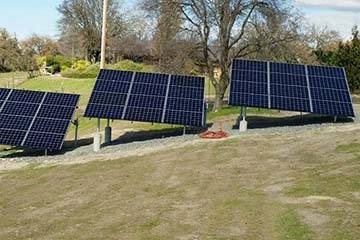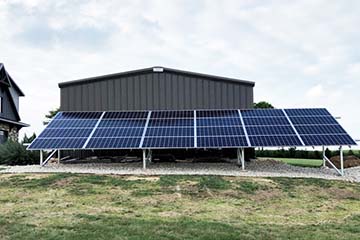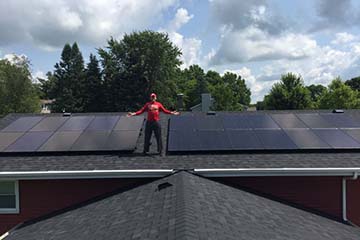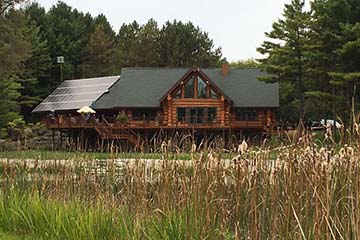DIY California Solar Kits
Off-Grid and On-Grid Systems
Blue Pacific Solar offers off-grid solar kits for customers who want to completely disconnect from the utility grid and generate their own electricity. These kits are designed to power homes, cabins, RVs, boats, and other remote locations. They typically include solar panels, batteries, charge controllers, inverters, mounting hardware, and wiring instructions. The specific components and capacities vary depending on the size of the system you choose.
On-Grid Systems:
If you prefer to remain connected to the utility grid but still want to generate your own electricity, Blue Pacific Solar also offers on-grid solar kits. These kits allow you to offset your electricity consumption by generating solar power. The excess electricity produced by the solar panels can be fed back into the grid, potentially earning you credits or reducing your electricity bills.
Sales Information:
To obtain sales information and purchase a DIY solar kit from Blue Pacific Solar, you can visit their official website at www.bluepacificsolar.com. On their website, you'll find detailed information about the various solar kits they offer, including specifications, pricing, and customer reviews. They also have a dedicated sales team that can provide personalized assistance and guidance to help you choose the right solar kit for your needs.
Keep in mind that it's always recommended to consult with a professional solar installer or electrician to ensure that your chosen DIY solar kit is suitable for your specific circumstances and complies with local regulations and building codes.
DIY Solar Panels for California
1. Understanding solar energy
Solar panels convert sunlight into electricity using photovoltaic (PV) cells. These cells are typically made of silicon and generate DC (direct current) electricity.
2. Assessing your energy needs
Determine your electricity consumption to understand how much solar capacity you'll need. Look at your utility bills and identify your average kilowatt-hours (kWh) usage per month.
3. Solar panel selection
Research different types of solar panels available in the market, their efficiency, durability, and warranties. Consider factors like cost, size, and power output when selecting panels.
4. System design and components
Plan your solar system layout and design, including the number of panels, inverter selection, and battery storage (if desired). Ensure compatibility between the components and consider factors like shading, roof orientation, and tilt angle.
5. Obtain necessary permits
Contact your local building department to understand the permitting process and any regulations related to solar panel installations in your area. Permits may involve submitting plans, inspections, and meeting specific requirements.
6. Purchase materials
Once you have your system design finalized, purchase the necessary components such as solar panels, mounting hardware, inverters, wiring, and other electrical equipment. Ensure you source reliable, certified components from reputable supplier like Blue Pacific Solar.
7. Installation
Proper installation is critical for safety and optimal performance. This step typically involves mounting the panels securely, connecting them in series or parallel, wiring the system, and connecting to the electrical panel. Ensure you follow safety guidelines and consult an electrician if needed.
8. System testing and connection
Once the panels are installed, perform necessary tests to ensure the system is functioning correctly. Contact your utility company to establish a connection agreement, as you may need to connect to the grid or apply for net metering.
Remember that solar panel installation involves working with electricity and requires expertise to ensure safety and efficiency. It's advisable to consult with a professional or electrician to avoid potential risks, ensure compliance with regulations, and maximize the benefits of solar energy.



